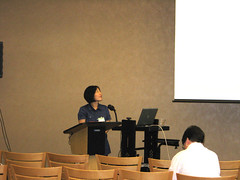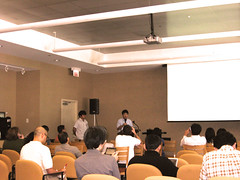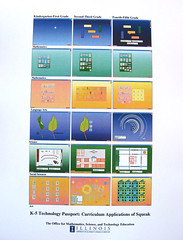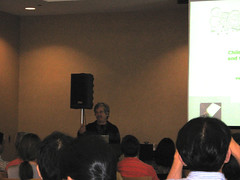Alan Kay, of the Viewpoints Research Institute presented the keynote address at Squeakfest 2007. Alan suggested the revolutionary nature of the personal computer was on par with the printing press in its ability to reshape society, however, he expressed concern that since the days of the Dynabook, though the PC has advanced considerably, the user interface has not. Citing Postman's "Amusing Ourselves to Death," he suggests that there is little worthwhile content in our media-rich environment. With the advent of the OLPC (aka "The $100 Laptop"), millions of children in developing countries could easily obtain a functional personal computer. System software along with authoring, scripting, and interface issues are somewhat easily overcome hurdles, however effective "Powerful Ideas" curriculum and particularly a network of qualified mentors will be particularly challenging.
To visit Viewpoints Research Institute, go to
http://www.vpri.org/.





